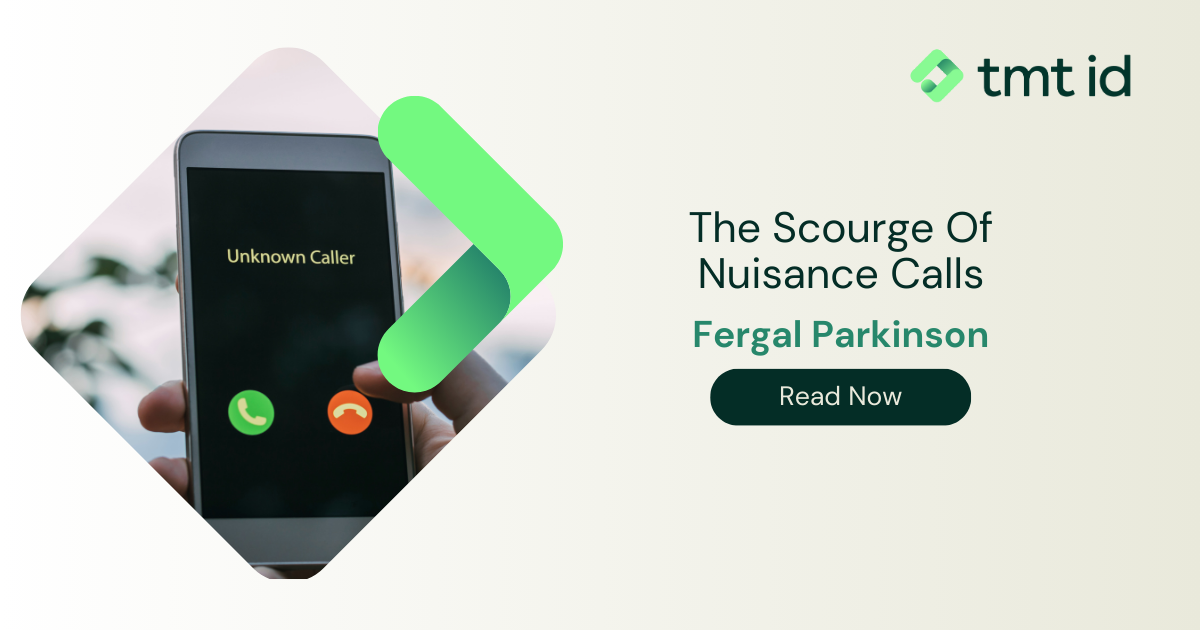
The issue of who can access what online – and at what age – is one that has become an increasingly pressing problem for everyone from parents to prime ministers and presidents across the world.
Here I want to look at some of the key issues, to explore where we are in this evolving sector – and finally to suggest some ways to make sure you are ahead of the curve.
Because those who don’t keep up in the fast-moving age verification field could soon be hit with some gigantic penalties.
It used to be a straightforward matter of facial appraisal.
When a young person turned up at a shop’s till or cash desk, holding a bottle of whisky, a pornographic magazine or asking for cigarettes, the shopkeeper would take a look at their face and make an instant appraisal of their perceived age. If they clearly appeared old enough to pass the legal threshold required for that product – be that 16, 18 or 21 – the sale would go through. If they appeared clearly too young, they’d be sent packing, often with some abuse ringing in their ears. And if they looked like they might be either just old enough, or not quite there, then they would be asked to produce some proof of age: a driving licence or similar.
This two-check system was basically how age verification worked everywhere until very recently. And, although crude, it was mostly accepted and relatively functional.
But in an increasingly online world, the question of what someone is or isn’t allowed to do and at what age – and how to assess that – has migrated from that old school, very human mechanism to one that is now overwhelmingly performed by tech.
That move from human to automated assessment of age has thrown up all kinds of issues around validation, security, compliance, regulation and the rest.
Just think of any platforms with a global presence – this can be anyone from a social media giant like Facebook or TikTok, a retailer like Amazon or Gumtree, a gaming site like Roblox or Minecraft, or any number of others. Each will have their own general user age-related protocols and procedures – and, where appropriate, their preferred age verification tools. But they will also be subject to country-by-country legal requirements. And as well as being subject to frequent change, these are becoming ever more stringent in many jurisdictions.
The reason for this dynamic and even volatile landscape is that the issue of young people accessing certain sites – be it social media, gambling or even porn – is increasingly a political one.
Parents are voters and politicians need their votes. So ever-growing parental concerns about what their kids can access online is not something they can simply ignore.
But no two countries will agree on any single approach and that in turns makes the whole field an increasingly complex one. To illustrate that, let’s take a snapshot look at some of the countries currently grappling with these issues, where they are now – and where they may soon be going.
Australia is trialling a pilot scheme which is testing various age assurance products ahead of likely legislation. The various methodologies under scrutiny are expected to include document uploads or alternatively allowing independent entities like banks, credit card companies or mobile phone providers to verify user age status. Just this week prime minister Anthony Alabese said he’d like to see the age limit for social media use set as high as 16, saying: “I want to see kids off their devices and onto the footy fields and the swimming pools and the tennis courts.”
France is road testing an unusual and elaborate system that relies on the use of an intermediary to sign off an applicant’s access to age-sensitive material. This would occur via a gateway through the existing social security system. When a user wants to access a platform their nominated intermediary would be required to approve – but privacy concerns mean they won’t be told what the website is. Will that work? It would need to be implemented first and I’m not sure it ever will be.
In Ireland a Protection of Children (Online Age Verification) bill is in the process of becoming law. It would place a legal obligation on pornograpy websites to keep under 18s out – and although it’s yet clear quite how they would be required to do this, the inference is that fines for breaches could be punitive. But it may never happen. Like France, Ireland is an European Union member state – and the EU is keen to have a joined up approach on age verification and so may yet block the bill before it takes effect.
Canada is also particularly concerned about access to pornography. An Online Harms Act has been drawn up but there is far from universal agreement on whether it should become law. Its champions say it’s urgently needed to keep youngsters off platforms like Pornhub – which can currently be accessed with a simple ‘yes I am over 18’ click. But opponents warn that its intention to rely on state-generated documentation to verify age will leave the system open to abuse from fake IDs potentially creating a black market and verification chaos.
India is also looking at enforcing mandatory age verification. It already has a data protection law which could place an obligation on platforms offering any contentious content to seek parental approval – but this is currently not enforced. Some in the socially conservative country insist it is the only way to protect young people. Others warn it would be practically unworkable, creating more problems than it would solve.
That’s five different countries – with five different strategies and distinct national debates. Sure there’s some crossover between them in concerns and approaches but there is plenty of divergence too. And there are similar variable scenarios unfolding in most other countries.
All these competing cases to be picked over and resolved makes age verification a global minefield.
And then the online platforms themselves have their own preferred pathways too. Unlike the politicians, however, they are in competition with other sites so for them anything which complicates or delays customer onboarding, or slows down customer purchasing is extremely unpopular.
Some will be more robust than others certainly, but when the prospect of huge financial penalties for breaches are becoming real then the incentive is there to make them workable.

The optimum route through this very complex map is, for me, the one in which the politicians confine themselves to demanding the outcomes they want – but leave the implementation to the websites. Because they are best placed to work out how best to deliver. In this scenario, governments can offer online enterprises the carrot of not letting people with no idea drag their businesses down – while the stick is the prospect of huge fines for failing to comply.
The introduction of robust age verification for porn is essential to protect vulnerable individuals and comply with evolving regulations. Porn companies face increasing scrutiny to ensure that their platforms are not accessible to underage users, as the risks of non-compliance can be severe, including legal penalties and other sanctions. Implementing effective age verification for porn sites allows businesses to demonstrate responsibility while adhering to legislative requirements. By adopting reliable porn age verification solutions, companies can foster a safer environment for users while avoiding potential fines or bans that could arise from failure to meet these standards.
Beyond pornography, the need for adult content age verification extends to a wide range of online platforms offering explicit or restricted material. These could include subscription-based services, forums, and streaming sites that cater to adult audiences. Effective age verification for adult content helps to ensure only eligible users can access these platforms, maintaining compliance with regulations and safeguarding against underage access. By employing robust age verification for adult sites, businesses can establish trust, meet legal obligations, and promote responsible content consumption in an increasingly regulated digital landscape.
As vaping continues to grow in popularity, ensuring that vape products are sold only to adults has become a legal and ethical priority. Vape age verification systems are designed to prevent underage access to vaping products, aligning with government regulations and safeguarding public health. These systems work by verifying the customer’s age during the online purchasing process, typically through a seamless integration of ID checks or mobile-based verification.
At TMT, our solutions leverage the power of mobile number authentication to streamline the vape age verification process. By analysing real-time data provided by telecom providers, the system determines the legitimacy of the mobile account and the age of its registered owner. This method offers a fast, reliable, and secure way to verify age without the need for cumbersome document uploads or manual intervention.
Using a mobile number for verification has several advantages. It ensures that only active users with a legitimate telecom account can proceed, reducing the risk of fraud or fake accounts. The process is frictionless, requiring minimal user input while delivering maximum compliance for vape retailers. This innovative approach ensures that businesses stay ahead of regulatory requirements while providing a hassle-free experience for their customers.
The cumbersome ideas of some politicians on how to apply age verification would be potentially catastrophic for online commerce – as well as ineffectual. But they are not going to let that old ‘yes, I’m 18’ low bar standard exist much longer.
The key to finding workable solutions is to use the expertise of those who know how to combine effective age verification checks with speed and convenience.
There are a number of established experts in this sector – and, although I include TMT ID in that category, we are by no means unique in this. But expertise is certainly the key. Ours lies in offering a credible, reliable and – crucially – seamless verification function based on an applicant’s mobile device account status. Because it’s much easier to fake a driving licence than it is to fake a data history. In fact the latter is practically impossible. Others in the field, as I say, offer similar or slight variations.
But whether it’s us or a rival, governments need to heed the experts – and turn to them for solutions. While businesses need to be up to speed on solutions and impending regulations. It’s not a subject to ignore.
Under the UK’s new age verification laws, the largest fine to date has been issued to an adult content company that failed to comply with age checks.
Last updated on January 6, 2026



Age verification should be effortless. We can verify a user’s age and give assurance based on their live mobile account information. Use frictionless age verification which doesn’t require your customers to upload or scan documents.
Find out moreWe provide the most comprehensive device, network and mobile numbering data available
Contact us > Chat to an expert >